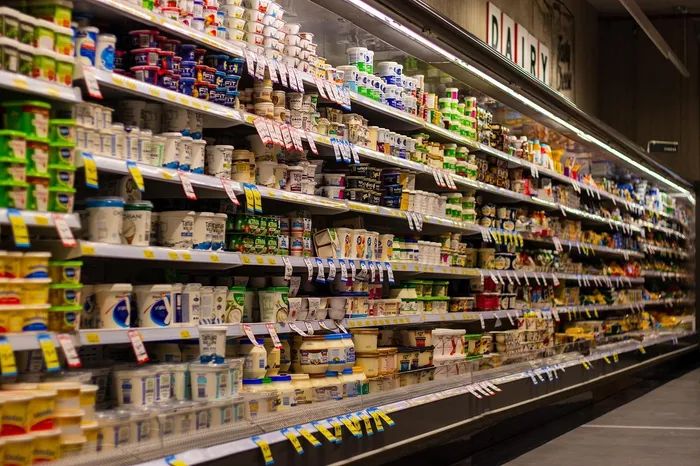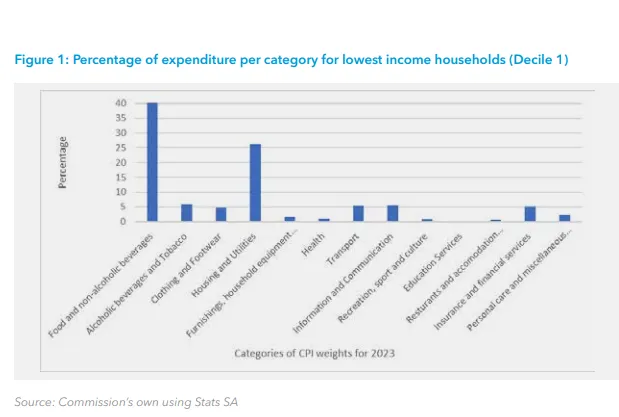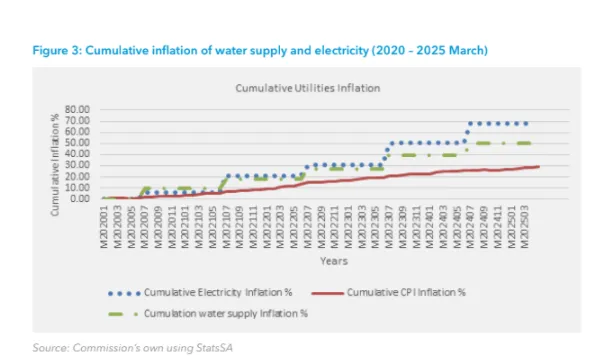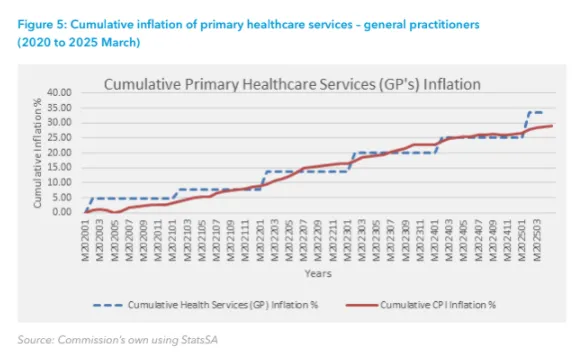South African households face financial strain from skyrocketing utility and food prices

South African households are buckling under the weight of rising costs, with electricity, water, education, and food prices outpacing overall inflation.
Image: Squirrel photos | Pixabay
South African households are buckling under the weight of rising costs, with electricity, water, education, and food prices outpacing overall inflation.
This is according to the Competition Commission’s first Cost of Living Report, released on Wednesday, which highlights the growing financial strain on low-income families and points to widening price gaps in essential goods and services.
The report expands on the Commission’s earlier Essential Food Price Monitoring (EFPM) report by including key non-food essentials such as electricity, water, transport, education, and healthcare costs, providing a more comprehensive view of household expenses.

South African households are buckling under the weight of rising costs, with electricity, water, education, and food prices outpacing overall inflation.
Image: Competition Commission’s
According to the report, electricity prices have increased by 68% and water by 50% over the past five years, far exceeding the general inflation rate of 28%.
Food staples such as brown bread, maize meal, and eggs have also seen concerning trends, with the report highlighting widening margins or sticky prices in some cases despite falling producer costs.
"There has been a recent increase in producer-level prices from April 2025 in response to slightly higher wheat prices. The farm-to-producer price spread for brown bread in South Africa increased to 77% which is above historic levels," the commission noted.
"At the retail level, following an initial increase in the producer-to-retail spread, the retail margin has reduced to 15% indicating that retailers have absorbed subsequent increases in the producer price for brown bread".

According to the report, electricity prices have increased by 68% and water by 50% over the past five years, far exceeding the general inflation rate of 28%.
Image: Competition Commission
Meanwhile, the report also noted that education costs for primary and secondary schooling have increased by 37% and 42% respectively, forcing many families to make tough choices between basic needs.
While transport costs, such as minibus taxi fares, have also risen sharply and tend to stay high even when fuel prices fall.
The report points out that low-income households are especially affected, as they spend more than 40% of their income on essentials such as food and basic services, making rising prices a significant burden.

South African households are buckling under the weight of rising costs
Image: Competition Commission
Chief Economist James Hodge emphasised that understanding the root causes of the cost-of-living crisis is essential to identifying where anti-competitive practices may be driving up prices for basic goods and services.
“By identifying and understanding the key underlying drivers of the current cost of living crisis, we can determine where anti-competitive conduct may be playing a role in exacerbating the cost of these essentials.
IOL Business
mthobisi.nozulela@iol.co.za
Get your news on the go, click here to join the IOL News WhatsApp channel
Related Topics: